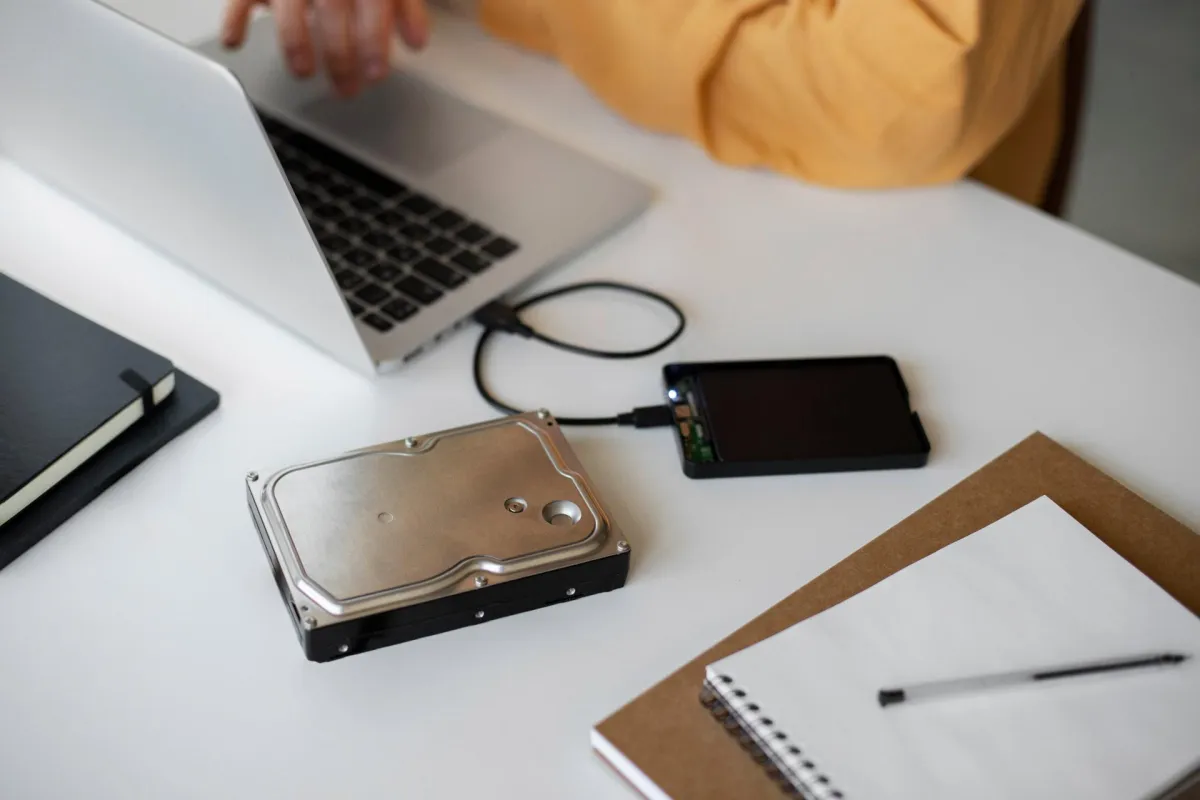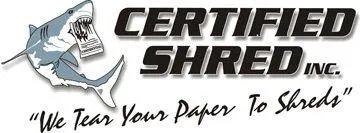Blog

How Hard Drive Shredding Protects Your Company from Data Breaches in Utah
Introduction
Imagine a mid-sized health clinic in Utah that decides to replace its old servers. The team wipes the hard drives and sells the equipment, thinking they are safe. Months later, a data breach is traced back to one of those drives. Sensitive patient data was recovered, leading to fines, an investigation, and a major loss of trust.
Hard drive shredding is one of the most reliable ways to prevent this scenario. It ensures data is permanently destroyed and cannot be recovered. This guide explains what hard drive shredding is, why it’s critical for Utah businesses, how the process works, and steps you can take to protect your company.
Understanding Hard Drive Shredding
What Hard Drive Shredding Is
Hard drive shredding is the process of physically destroying storage devices such as HDDs, SSDs, and other media so no data recovery tools can bring the information back. Unlike simple file deletion or formatting, shredding permanently eliminates the risk of data leaks.
Why It Matters for Utah Companies
Companies in Utah are legally required to use reasonable security measures when disposing of personal information. For businesses that handle medical, financial, or customer data, this means ensuring drives are destroyed beyond recovery. Data breaches can lead to significant costs — regulatory fines, lawsuits, and reputational damage. Hard drive shredding is considered one of the most secure and compliant ways to meet these obligations.
How Hard Drive Shredding Works
To understand the process, here are the key steps most businesses follow when using a professional shredding service:
Drives are collected and placed in locked, secure containers
Serial numbers may be logged for documentation and compliance records
Drives are physically shredded or crushed so internal components are destroyed
Some companies use additional steps such as degaussing (magnetic wiping) before shredding
Remaining metal and components are recycled responsibly
Comparing Different Destruction Methods
Here’s how shredding stacks up against other approaches:
How to Protect Your Business with Hard Drive Shredding
To make sure your company is fully protected, follow these steps:
Take Inventory of Storage Devices
Start by listing all drives and media that store company or customer data. Include desktops, laptops, servers, backup drives, and removable media.Classify Data Sensitivity
Decide which drives contain the most sensitive data such as financial records, employee data, or client information. These should have top-priority destruction.Check Compliance Requirements
Review federal and state regulations such as HIPAA, GLBA, PCI DSS, or Utah’s Protection of Personal Information Act. Choose a destruction method that meets or exceeds compliance standards.Select a Trusted Provider
Choose a shredding company with proper security certifications, documented chain of custody, and the ability to provide certificates of destruction. Ask whether you can witness the destruction.Plan Logistics and Timing
Decide between on-site shredding (done at your facility) or off-site shredding (done at a secure plant). Consider scheduling destruction during slow business hours to minimize disruption.Maintain Documentation
Keep records of serial numbers, destruction dates, and certificates. This documentation is valuable during audits or compliance reviews.Verify Responsible Recycling
Confirm that shredded components are properly recycled to avoid environmental issues.
Frequently Asked Questions
Is shredding better than just wiping drives?
Yes. Shredding physically destroys the drive so data cannot be recovered, even with advanced tools.
How much does hard drive shredding cost?
Pricing depends on the number of drives, the type of drives, and whether you choose on-site service. Most providers offer volume discounts.
Can SSDs be shredded like traditional hard drives?
Yes, but the equipment must be capable of destroying the flash memory chips. Verify your provider can handle SSDs specifically.
Do I need to keep proof of destruction?
Yes. Certificates of destruction and serial number logs can protect your business during audits or legal reviews.
Can I watch the shredding process?
Many providers allow you to witness destruction for peace of mind and compliance documentation.
Conclusion
Hard drive shredding is one of the most effective ways to protect your business from costly data breaches. By physically destroying drives, you eliminate the risk of data recovery, meet compliance standards, and show your clients that you take data security seriously.
Businesses in Utah can benefit from scheduling regular shredding services, especially when decommissioning equipment or completing a technology refresh. Taking these steps now can save your company from significant losses later.

© 2025 Certified Shred
Contact Information
Phone: 801-972-4748
Email: [email protected]
Address: 537 Pickett Circle Suite 600 Salt Lake City UT 84115
Business Hours:
Mon - Thu: 8:00 am-3:00 pm
Friday: 8:00 am - 1:00 pm
Sat - Sun: Closed
Service Areas
© All Rights Reserved • Grease Guys | Terms of Use | Privacy Policy